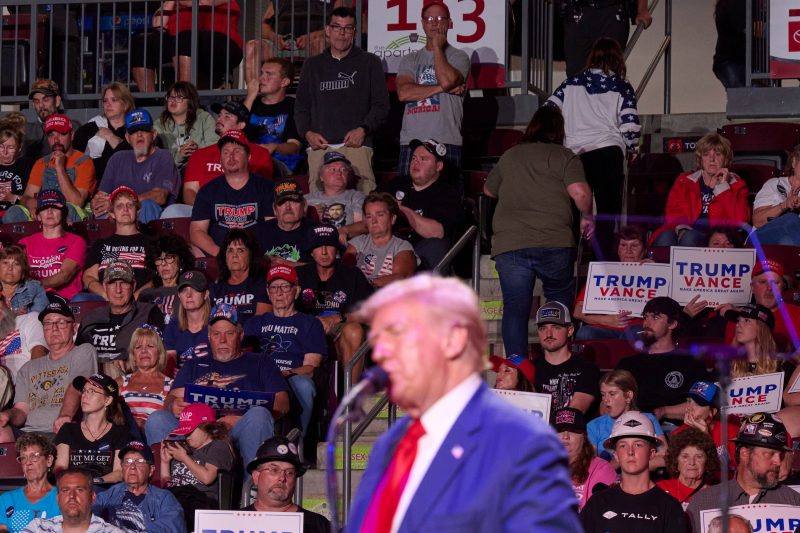In today’s highly intriguing and polarizing political landscape, the departure of attendees from Donald Trump’s rallies before the event concludes has become a subject of keen observation and analysis. While some may attribute this phenomenon to mere happenstance or individual preferences, a deeper exploration reveals a multitude of reasons underlying this early exit trend.
One primary factor contributing to the early departure of attendees from Donald Trump’s rallies is the length of the events. These rallies are known for their extended durations, often spanning several hours. For many individuals with busy schedules or commitments, staying until the very end may not be feasible. The decision to leave early could simply be a practical one, driven by the need to tend to other responsibilities.
Another crucial aspect to consider is the repetitive nature of Trump’s speeches and talking points. Over time, attendees may feel a sense of déjà vu as they listen to similar themes and rhetoric being reiterated in various forms. This repetition can lead to a sense of disengagement or boredom, prompting some individuals to choose to leave early in search of a more stimulating or diverse experience.
Furthermore, the intense and at times confrontational atmosphere prevalent at Trump’s rallies can also influence attendees’ decisions to leave before the event concludes. These gatherings often feature passionate supporters as well as vocal critics, leading to heightened tensions and occasional disruptions. Individuals who feel uncomfortable or unsafe in such environments may opt to exit early to avoid potential conflicts or confrontations.
Additionally, the physical demands of attending a rally cannot be overlooked. Large crowds, loud noises, and limited amenities such as seating or restroom facilities can take a toll on attendees, especially those who may not be accustomed to such conditions. Fatigue, discomfort, or health concerns may prompt individuals to depart before the event reaches its end.
Lastly, personal motivations and priorities play a significant role in determining when attendees choose to leave Trump’s rallies. Some individuals may have attended primarily to show support or solidarity, rather than to listen to the entirety of the event. Once they feel they have accomplished their objective, they may see no reason to stay until the end.
In conclusion, the early departure of attendees from Donald Trump’s rallies can be attributed to a combination of factors ranging from logistical constraints and repetitiveness to discomfort and personal preferences. By recognizing and understanding these diverse reasons, a more nuanced understanding of this phenomenon emerges, shedding light on the complex dynamics at play in the realm of political events.


























